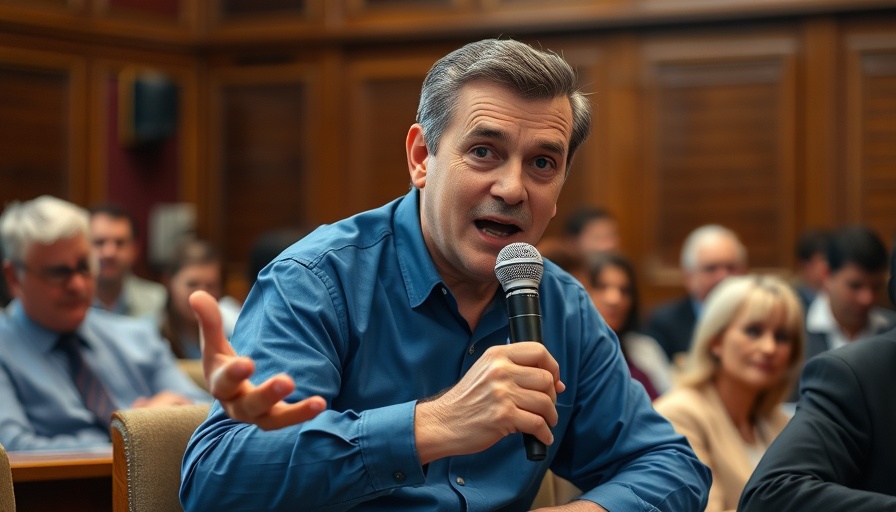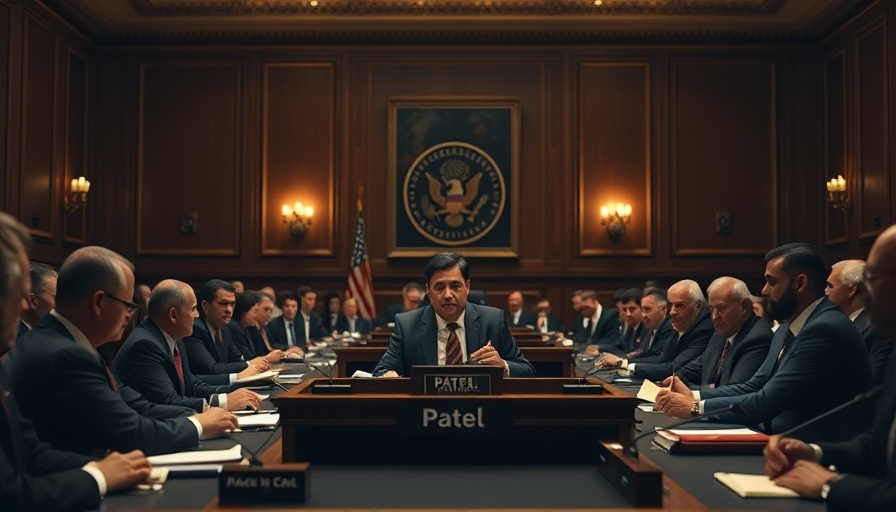
Who Really Decides in American Governance?
In the recent opening statement by Chairman Jim Jordan during a hearing on what many are calling judicial overreach, a vital question arose: “Who decides?” This notion resonates strongly among conservatives who are increasingly frustrated by the encroachment of unelected judges and bureaucrats on decisions that should be left to elected officials. Jordan expressed a sentiment many Americans share, that those who have been placed in power by the electorate should have the final say, rather than those operating outside the democratic process.
In 'Chairman Jordan Opening Statement at Hearing on Judicial Overreach,' the discussion raises critical insights about authority in governance, prompting a deeper analysis of how we can champion democratic ideals.
The Elected vs. the Appointed
Jordan's statement highlights a growing distrust of the judicial system perceived as dysfunctional or overreaching. He pointed to examples such as an unelected judge determining issues as critical as military readiness, which is typically under the purview of the Commander-in-Chief. This raises a significant concern among conservative voters about the accountability of elected officials versus that of appointed judges, who may not reflect the will of the people.
The Disconnect with Democracy
For those who believe in the promise of democracy, it can be disheartening to see instances where elected representatives are undermined by unelected authority. Jordan noted how last year, a political party sidelined its candidate without the voters’ consent, demonstrating a troubling trend away from genuine electoral processes. This is the kind of behavior that sows distrust and breeds resentment among citizens who wish to see their votes respected.
The Call to Action
As the hearing revealed, the push is on for legislative measures designed to curtail this judicial overreach. Jordan's support for Representative Issa's legislation exemplifies a broader desire within the conservative community to reclaim control over government functions. It is a significant moment for the Republican base, which is eager for reforms that align more closely with the will of the American people.
Beyond these discussions, the core of the matter brings forth the essence of freedom: allowing the electorate to make decisions regarding their leaders and policies. Conservatives see this as a fundamental issue tied directly to their vision of America. The upcoming legislative actions could finally restore some balance between elected officials and judicial authority.
This renewed focus on our democratic system strengthens the argument that it is the people who must have the ultimate say in governance. If you believe in the principles of democracy and want to take an active role in shaping the future of our country, now is the time to engage and advocate for the changes you wish to see.
 Add Row
Add Row  Add
Add 




Write A Comment